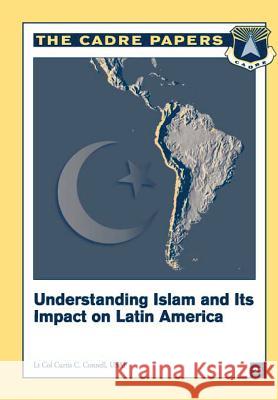Understanding Islam and Its Impact on Latin America: CADRE Paper No. 21 » książka
Understanding Islam and Its Impact on Latin America: CADRE Paper No. 21
ISBN-13: 9781479196708 / Angielski / Miękka / 2012 / 64 str.
Lt Col Curtis C. Connell hits a sensitive key in his observation that Islamic terrorism became one of the most important American security concerns after the attacks of 11 September 2001. Having spent three years as assistant air attache in Buenos Aires, he sought to combine a fresh interest in Latin America with his desire to learn more about the nature of radical Islamic fundamentalism and its virulent association with terrorism. His fellowship year at Harvard University and guidance of his professors encouraged him to coalesce interests into a combined study of Islamic fundamentalism and its manifestation in Latin America. At the end of the term, he produced this very useful and attractive monograph, Understanding Islam and Its Impact on Latin America. The initial question of this study concerns the debate between those who believe in a general Islamic threat, as defined most eloquently by Samuel P. Huntington in The Clash of Civilizations and the Remaking of World Order, and others who see a small band of religious fanatics who have hijacked Islam from the moderate majority. This question about the source of terrorism has importance to the major Islamic nations as it does for Latin American countries, where Muslims are a largely undistinguishable minority. The preliminary answer for Latin America is that the United States should not be alarmed at the potential for Islamic fundamentalism, but sufficiently concerned to keep a watchful eye on future developments. In fact Connell suggests that the demographics do not favor the growth of an effective radical movement. If there are too few Muslims in Latin America to birth radicalism, there is on the other hand, a very active and extensive native, non-Islamic terrorism. The author connects these dots because he sees a latent connection to Muslims in the areas where terrorist organizations and drug traffickers proliferate. It is a potentially easy step for incipient Muslim radicals to get caught up and find beneficial purpose with these criminals. For example, the US dependence on imported petroleum and natural gas and a vulnerable transportation system provide an attractive target for Islamic terrorists, one they have used in the past."
Zawartość książki może nie spełniać oczekiwań – reklamacje nie obejmują treści, która mogła nie być redakcyjnie ani merytorycznie opracowana.











